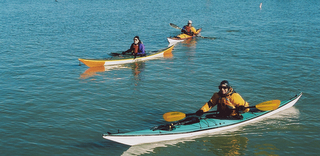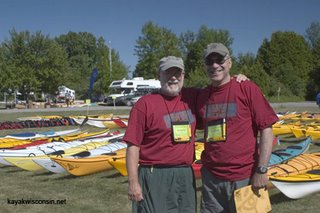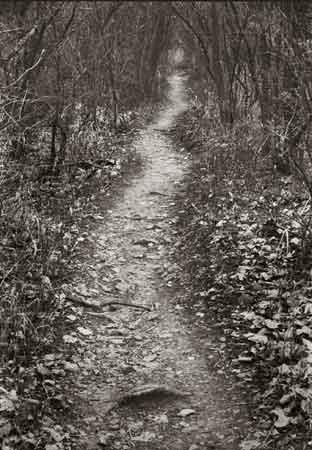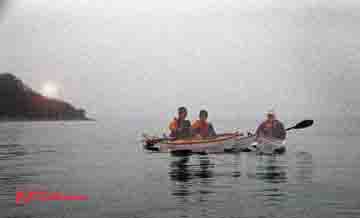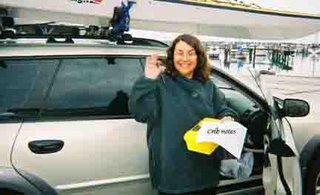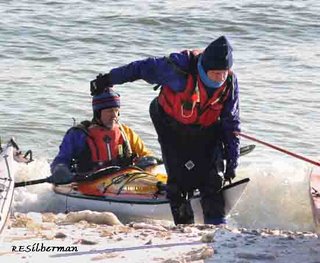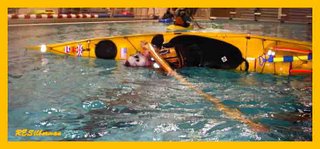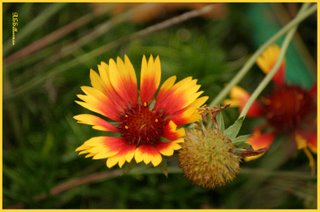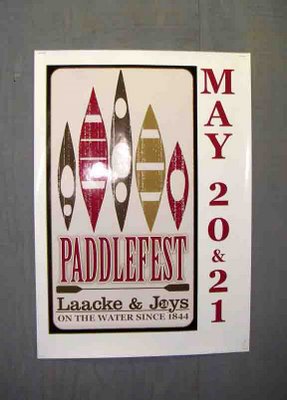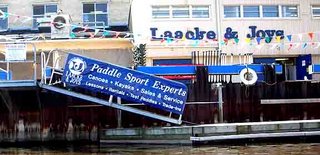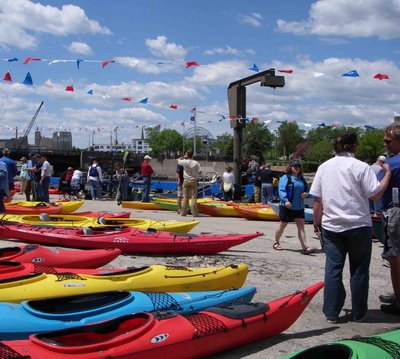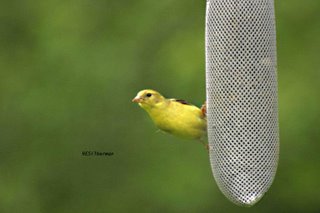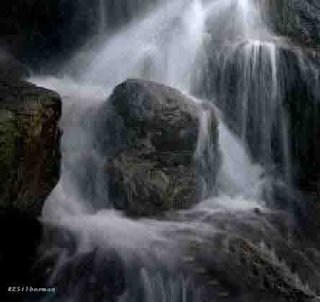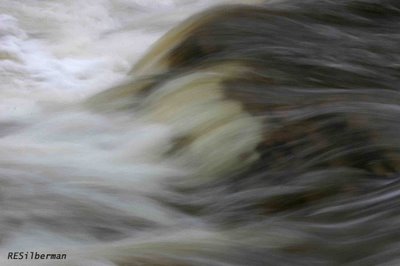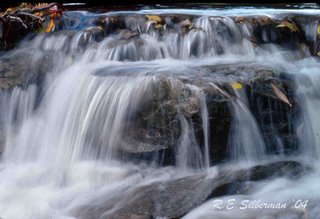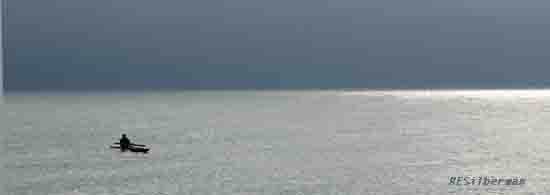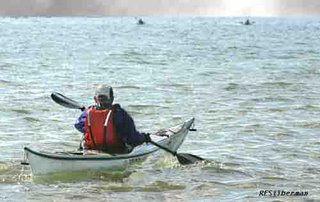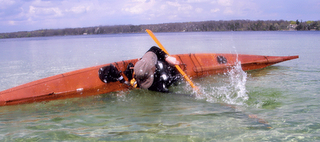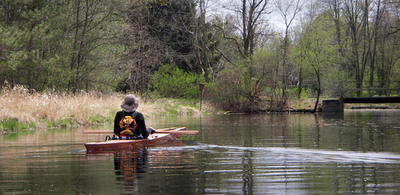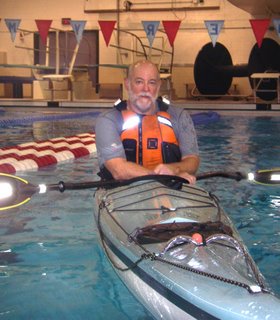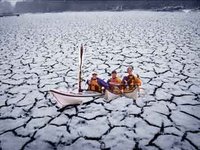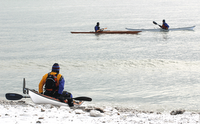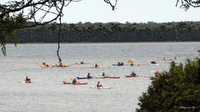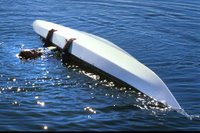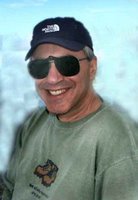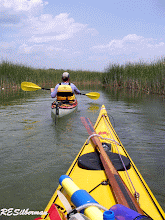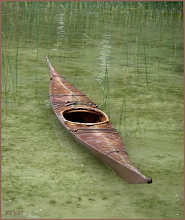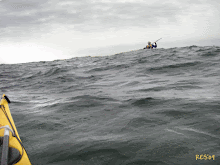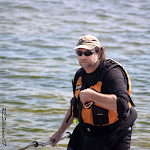Discovery of new species on the Milwaukee Area
(A Scientific Paper)
(This paper, with a p vallue under .001, was turned down for publication by Nature and Scientific American. It is presented here to inform our readers and to stimulate in-depth discussion of life forms on our planet...ds)
The Glendale Sector of The Milwaukee River.
Many known life forms exist in this section of the great river. Its sustanance of life, both plant and animal, is well known and obvious to anyone who has taken the time to observe her. A good example are these turtles sunning 200 yards from Interstate 43.
 Because of its value as a scientific,as well as a recreational site, stewards of these pristine waters have created scientific and carefully worded signage to help the public enjoy all the benefits of this body of water.
Because of its value as a scientific,as well as a recreational site, stewards of these pristine waters have created scientific and carefully worded signage to help the public enjoy all the benefits of this body of water.

In the interest of sustaining this wonderful Eden for generations to come, our scientific team (under a grant from major chemical companies and SPRTD...the Society to Prevent River Transmitted Deseases) has begun a careful survey of the Glendal Section. What has been discovered is the subject of this scientific paper.
What has been learned thus far (and these are just preliminary findings) has been nothing short of amazing. We have (and this is the official announcement...watch the main stream press for more follow up) discovered an entirely new subspecious of life which we have tentaviely named
Plasticus Eternium
This serendipidous find was heralded by what, at first, was thought to be an isolated specimen pictured here.
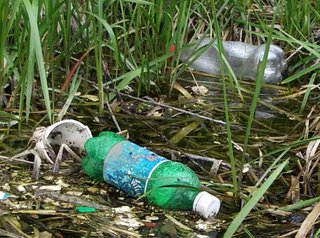
One can see, from its clever green coloration, how this intelligent life form has evolved to remain undetected...an obvious and successful survival mechanism.
This particular form of Plasticus Erternium (PE) has been designated the filum Brevis Cervicus (literally, short necked).
Interestly, this filum has only been observed moving with the flow of the river and has never been seen going upstream. Other scientific collaborators of ours are already searching the headwaters to try and find young forms of this filum. To date, nothing is known of its feeding habits, however (see next picture) there may be some clues alluding to its mating behavior.
As one can see in the following rare image, several forms of pe have been observed in colonies. This particular photo is valuable for its recording of various colorations adapted by these creatures. It is not known if these are permanent colorations or just seasonal changes that serve to attract a potential mate. In addition, the photo contains other forms not yet classified or studied.
This particular photo is valuable for its recording of various colorations adapted by these creatures. It is not known if these are permanent colorations or just seasonal changes that serve to attract a potential mate. In addition, the photo contains other forms not yet classified or studied.
There will be further papers on these fascinating creatures and others still being studied. One example is the Hullus Inversus, a recently observed life form that is believed to be aqautic but has only been observed on shores near the river. It is unknown how it arrives there, its means of locomotion (pe seems to passively use currents) or what it uses for food sources.
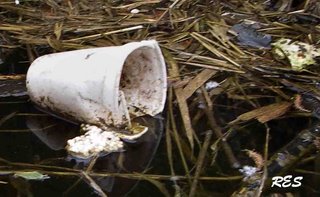
Finally, to wet and titalate your scientific sense of awe, a picture of a species, as yet unstudied and clearly different from pe on a cellular basis. Among its differences is the ability of this new species to with stand high temperatures, thus allowing it to survive in hot water. This exciting find is so new that a latin designation is pending, however, our lab has asked the Federation of Aquatic Biologists (FAB) to assign it the name Styro-Magnus Orus. Until this becomes an official name, we will affectionately refer to it as (by translation of its proposed latin name) the Styro large mouth.
Continue to monitor this site for further discoveries.
DS et al

